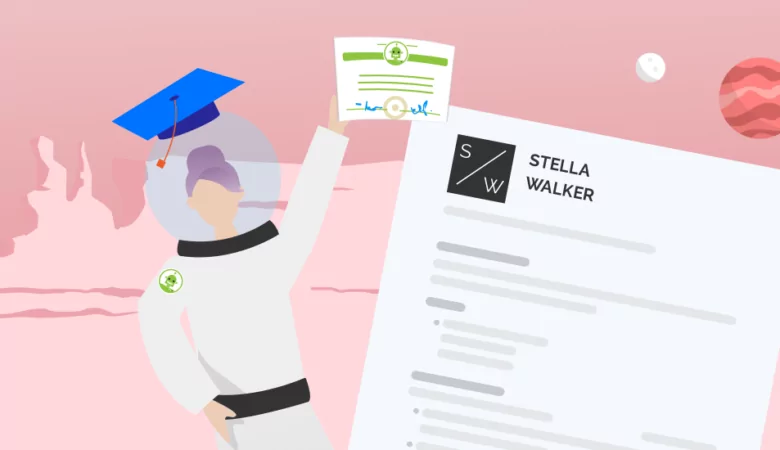Stress management is a crucial part of avoiding burnout and thriving in your professional life. How can you maximize stress management and add it to a resume?

Understanding and Recognizing Stress Management
Stress Management
Everyone’s stress levels get high from time to time. However, while you may feel like you’re able to handle your stress levels right now, stress affects your whole life. This means stress management can improve your quality of life overall. If you’re trying to avoid the effects of stress, there are many stress management techniques. Plus, learning more about the general impacts of stress can help encourage you to do something about it. Here’s what you need to know.

What Is Stress Management?
The term “stress management” refers to any of a wide variety of relaxation techniques and similar methods of avoiding stress. Because there are so many different ways to manage your stress, there’s no such thing as a single “stress management technique.” Instead, stress management is all about identifying stressors, avoiding the effects of stress, and generally reducing the amount of time where you experience stress. It’s an ongoing project for many people, and it’s not something that you can just resolve overnight. However, stress management techniques can end up being a lifesaver for many people.
How Can Stress Management Help You in Your Job and on Your Resume?
Although stress management might be something you associate heavily with your personal life, you might be surprised to learn that it’s also something that can help you in your professional life.
Probably the most common issue that you may have heard about before with regard to stress is burnout. If you’re regularly under a lot of long-term stress in a particular field, you may find that it becomes more and more difficult to do the things you previously loved. As you continue to experience stress, you may experience more negative thoughts while doing it, eventually culminating in serious difficulties staying motivated and productive.
This is burnout, and it can absolutely happen to you if you’re unable to manage your stress effectively. Engaging in stress relief regularly, especially if you frequently have to deal with stressful situations at your job, is crucial so that you don’t carry those stressors with you. The more you reduce your stress and increase your social support, the better off you’ll be in your job.
Additionally, stress management is crucial if you’re in a field that regularly has stressful elements, like same-day turnarounds and heavy workloads. Without good stress management skills, you’re unlikely to be able to implement time management skills and meet deadlines. Your interpersonal skills may also deteriorate, as a person carrying a lot of stress will be less likely to interact well with peers. Plus, you might find that you need to get into a different field more quickly, which means that you’re not going to stick around for very long.
Stress management helps you, your employer, and your clients. If you want to ensure that you’re a better job applicant than most of the job seekers applying to a specific job, it’s a good option to include “stress management” as a skill in your resume.
Methods You Can Use To Manage Stress
If you’re looking to start using stress relievers, there are many options available for you. This includes everything from actively seeking out classes and groups to making small steps at home. Additionally, check out official information from the National Institute of Mental Health, the American Heart Association, the American Psychological Association, and the National Institute of Health (NIH). Here are a few options that might be able to help you bring down your stress levels:
- Tai chi
- Deep breathing exercises
- Gentle physical activity
- Learning coping strategies
- Using stress management apps
- Understanding your sources of stress
- Getting enough sleep
- Self-care activities
- Treating pre-existing health conditions
- Talking to a mental health professional
- Progressive muscle relaxation
- Making a to-do list
If you want to feature stress management as a skill on your resume, don’t just list “stress management” in your skills section. Feature examples from past jobs in which you handled stressful situations successfully, or were able to maintain productivity even on projects with tight deadlines.
FAQ: Stress Management
It definitely can. In both the short-term and the long-term, you can receive cardiovascular and immune system benefits from reducing stress as part of a healthy lifestyle. Managing stress can help you reduce your blood pressure, as chronic stress can raise your heart rate and lead to high blood pressure. Additionally, it can help your mental health. Because the stress response impacts your nervous system, stress reduction can help with your mental health and well-being.
Absolutely. Stress impacts every aspect of your life, and that definitely includes your job. When you’re more stressed out, you’re more likely to do shoddy work, have a harder time doing work, and be more likely to quit altogether. Hiring managers want to hire someone for the long run, not someone who will quit in the next few months, and knowing that you have good stress management skills can help you stand out.
When you’re going through the ResumeNerd resume builder, stress management is something that you might need to think about. Reducing stress can help you avoid health problems, help you do your job better, and generally improve your quality of life. The effects of stress, both short-term and long-term, are negative, but with the right skills, you can reduce those impacts.







